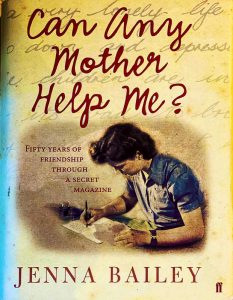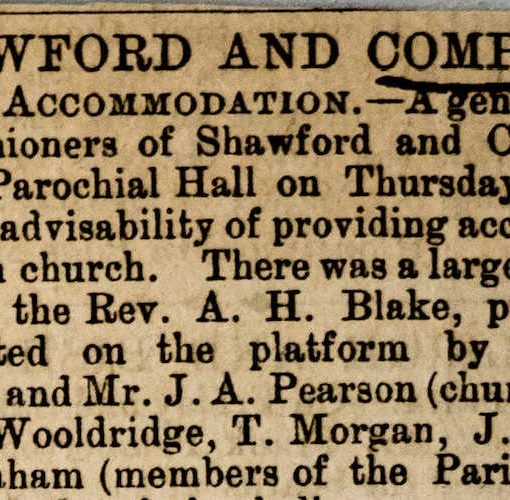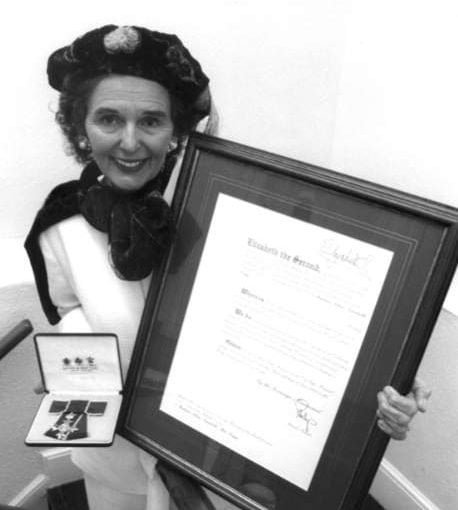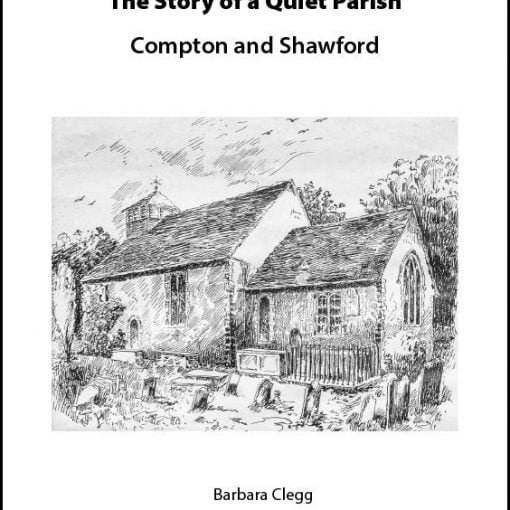The Co-Operative Correspondence Club
In 1935, in between cures for constipation in children and readers’ suggestions for the best kind of oil to treat sunburn, The Nursery World magazine’s letters page, under the heading “Over the Teacups”, carried this plea for help from a young mum who signed herself “Ubique” (Latin for Everywhere).
Can any mother help me?
I live a very lonely life as I have no near neighbours. I cannot afford to buy a wireless. I adore reading, but with no library am very limited with books…
I get so down and depressed after the children are in bed and I am alone in the house…
I have had a rotten time, and been cruelly hurt, both physically and mentally, but I know it is bad to brood and breed hard thoughts and resentments. Can any reader suggest an occupation that will intrigue me and exclude “thinking” and cost nothing! A hard problem, I admit.
Women from all walks of life and all over the country wrote in support, expressing similar frustrations.
In those days, there was no email or any other easy way for them all to keep in touch with each other. Ubique came up with the idea of a privately circulated magazine, “The Co-operative Correspondence Club (CCC)”.
There was only one copy of each issue. Every fortnight the women, who all used pseudonyms, would post an article to the editor. She would hand-stitch the contents together in a decorative linen cover and post it to the first member on her list. Each member had to read the magazine quickly and then post it to the next one on the list.
Because they knew there was such a small distribution, the members felt free to write with startling honesty about the things that mattered to them most – children, work, love, sex, politics and more. The magazine was a great source of support through the war years, when most of the women were having to hold their families together while their husbands were away. The same two dozen women carried on the magazine for an incredible 55 years. It only stopped because of the old age and infirmity of the surviving members.
In 2003, Canadian Jenna Bailey was studying at the University of Sussex, looking for a subject on which to base her Master’s thesis. In the Mass-Observation project archive, which is housed at the University, she came across files from the CCC.
Many of the old magazines had been disassembled and the individual sections returned to their original authors, but enough copies and other correspondence remained to allow Jenna Bailey to track down those CCC members still alive, and the children of some of the members who had passed away.
Can Any Mother Help Me?
The result of her researches is a book Can Any Mother Help Me? Fifty Years of Friendship through a Secret Magazine, (Faber & Faber 2007).
You can still find copies for sale online.
A Kindle edition is also available.

Barbara Clegg and the CCC
One of the members of the CCC was Shawford’s Barbara Clegg, who wrote and directed the annual Shawford Pantomimes from the end of the war until the early 1970s. Barbara Clegg was a trained historian who had written the historical pageant for Compton Church’s Octocentenary celebrations in 1955. She also wrote the short history of Compton & Shawford which the Local History Society published in aid of church funds in 2019 (a few copies are still available).
For the CCC, Barbara Clegg used the pseudonym “Barnie”. Jenna Bailey, who has kindly given the LHS permission to use excerpts from the book on this website, told me that the book would have contained several examples of Barnie’s contributions, but the publishers removed that chapter before the book went to print.
Among the surprising subjects covered in the book are contributor Roberta’s theories on the relationship between orgasm and the sex of resulting children, and Yonire’s account of fighting off the unwelcome advances of a family friend when the pair of them had ended up drunkenly in St John’s Church (off Princes Street, Edinburgh) in the middle of the night intending to play some Bach on the organ. Isis, whose son Matthew was diagnosed with Downs, gets a crush on the doctor, and is then sent off for psychiatric treatment and electric shock therapy. Glen Heather needs support when her husband Don is diagnosed with terminal cancer. Waveney, who thought her husband had been killed at Dunkirk, discovers he is a prisoner of war. He suffers from the aftereffects of that experience for the rest of his life.
With thanks to Fleur Croker for drawing my attention to this fascinating book.
Adrian Walmsley
“Barnie” – B.M.Clegg
reproduced from the Members’ Biographies section of Can Any Mother Help Me? by kind permission of the author.
Barnie was born in Lowestoft in 1899. She went to Oxford in 1918 to study history.
She had known her future husband John since childhood and eventually they had a romantic connection, but it would be several years before they married. John was a subaltern in the army and could not obtain permission to marry from his colonel until he received his captaincy.
Barnie waited patiently for him, during which time he fought and was seriously wounded in the trenches of the First World War. During these years she taught history at Beverley High School in Yorkshire, Heathfield School, Ascot, and Norwich Teacher Training College.
The pair eventually married in 1931 and shortly afterwards moved to India, where the Hampshire Regiment was stationed. They lived in North-West Frontier Province and Barnie gave birth to their first daughter, Anne, in 1933 in Nowshera (now part of Pakistan) and to John, in 1934, in Muree, also now in Pakistan.
They returned to England in 1935 and eventually settled in Shawford. Here Barnie had their third child, Mary, in 1941.
Barnie spent her time during the war raising the children and teaching history at St Swithun’s School, Winchester.
She also wrote many plays for the Women’s Institute and for the local amateur dramatic society, the Heathcote Players. John retired as a lieutenant-colonel in the 1950s, but both he and Barnie remained very active.
Barnie was highly intelligent and a voracious reader. She had a genuine interest in people and was dedicated to her family and her community. She and John were members of the Church of England, regularly attending services and supporting many church functions.
She was a true historian with a passion for learning, a passion that extended into every facet of her life.
She was one of the original members of the CCC, joining around 1936 and contributing until shortly before her death. She loved the magazine as it provided a link with other similarly bright and dynamic women.
She spent countless hours writing, often historical articles, much to the enjoyment of the other members.
In January 1976, Barnie was diagnosed with bowel cancer and was admitted to hospital for emergency surgery. After this her health quickly deteriorated. She had been caring for John, who was showing the first signs of dementia, and so with her decline he moved into a nursing home.
John died from a heart attack on August 12, 1976, and Barnie passed away six days later.
References
- Can Any Mother Help Me? Fifty Years of Friendship through a Secret Magazine, by Jenna Bailey
- Publisher: Faber & Faber; Main edition (1 Mar. 2007)
- Language: English
- ISBN-10: 0571233139
- The description of “Barnie” (B.M.Clegg) above appears in “Can Any Mother Help Me?”. It is reproduced here by kind permission of the author, Jenna Bailey.
- This piece is based on an article which appeared in the May 2020 edition of the Compton & Shawford Parish Magazine.
- The Co-operative Correspondence Club (Wikipedia)
- Magazine Movements: Women’s Culture, Feminisms and Media Form, by Laurel Forster.
- Publisher: Bloomsbury Academic (23 April 2015)
- Language: English
- ISBN: 1441172637
- A snapshot of life in the margins, review of “Can Any Mother Help Me?” 4 March 2007, The Observer.
- Letters from “Glen Heather” : extracts from “Can Any Mother Help Me” in the History of Emotions Blog. Glen Heather needs support when her husband Don is diagnosed with terminal cancer.




